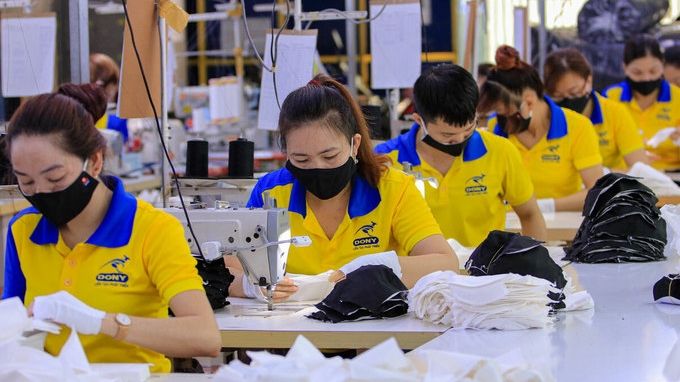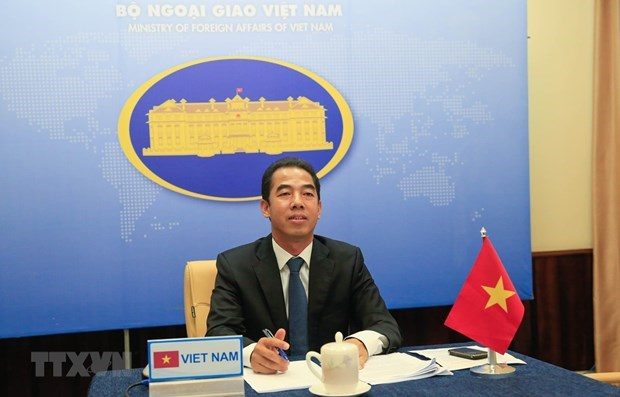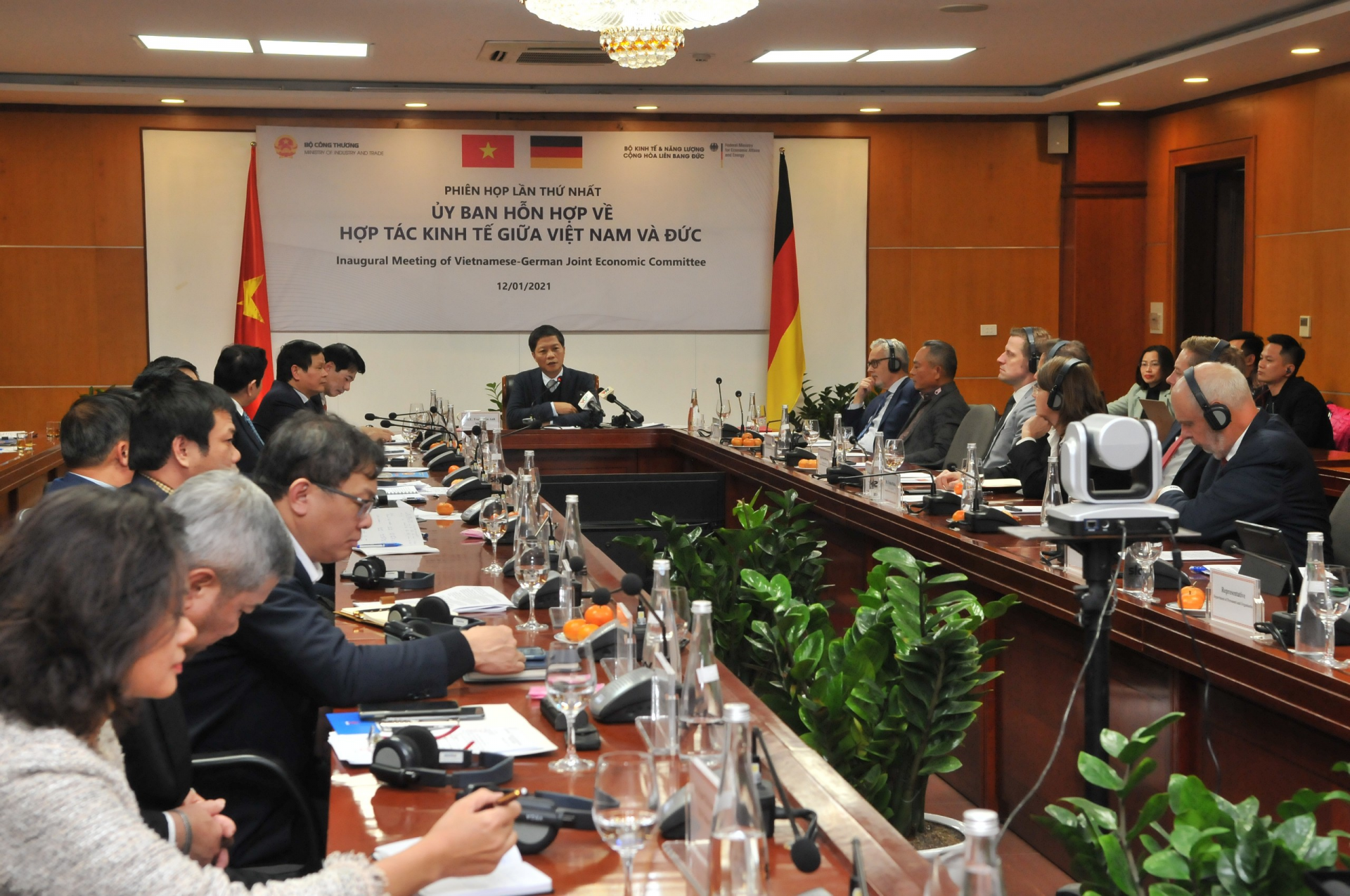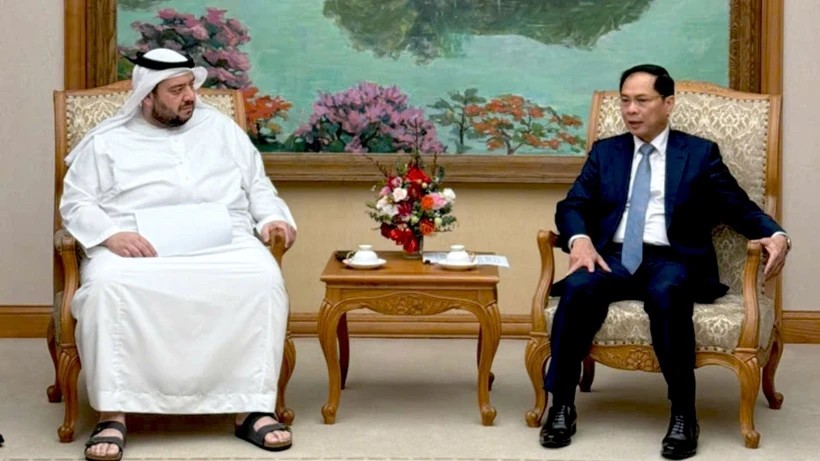EU firms optimistic about Vietnam’s economic outlook
| Vietnamese, Dutch businesses urged to optimise EVFTA | |
| Vietnam-EU ties to flourish stronger in the time ahead | |
| Vietnam, Germany beef up economic links |
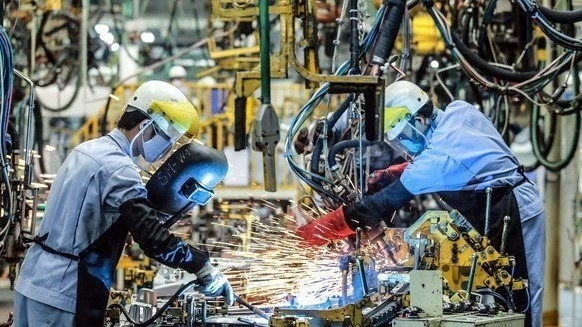 |
| 57 percent of EuroCham members anticipate “stabilization and improvement” during the opening three months of the year. Photo: VNA |
The European Chamber of Commerce in Vietnam (Eurocham) has unveiled the latest Business Climate Index (BCI), indicating that European business leaders concluded last year in a more optimistic mood regarding the country’s trade and investment environment than at any other point since the initial outbreak of the novel coronavirus (COVID-19).
In line with this, the BCI climbed six points during the final quarter of 2020 to reach 63.6, ending last year on a high. The index therefore rose by a total of 37 points over the course of last year following a drop to a historic low in the first quarter due to the initial outbreak of COVID-19. Since then, the BCI has been able to maintain positive growth following the country’s successful handling of the pandemic, along with the implementation of the EU-Vietnam Free Trade Agreement (EVFTA) which served to improve confidence whilst boosting business.
When asked about the nation’s economic prospects moving into the next quarter, 57 percent of EuroCham members anticipate “stabilization and improvement” during the opening three months of the year, a sharp rise in comparison to 39 percent in the third quarter of 2020, a rise in confidence of 18 percent.
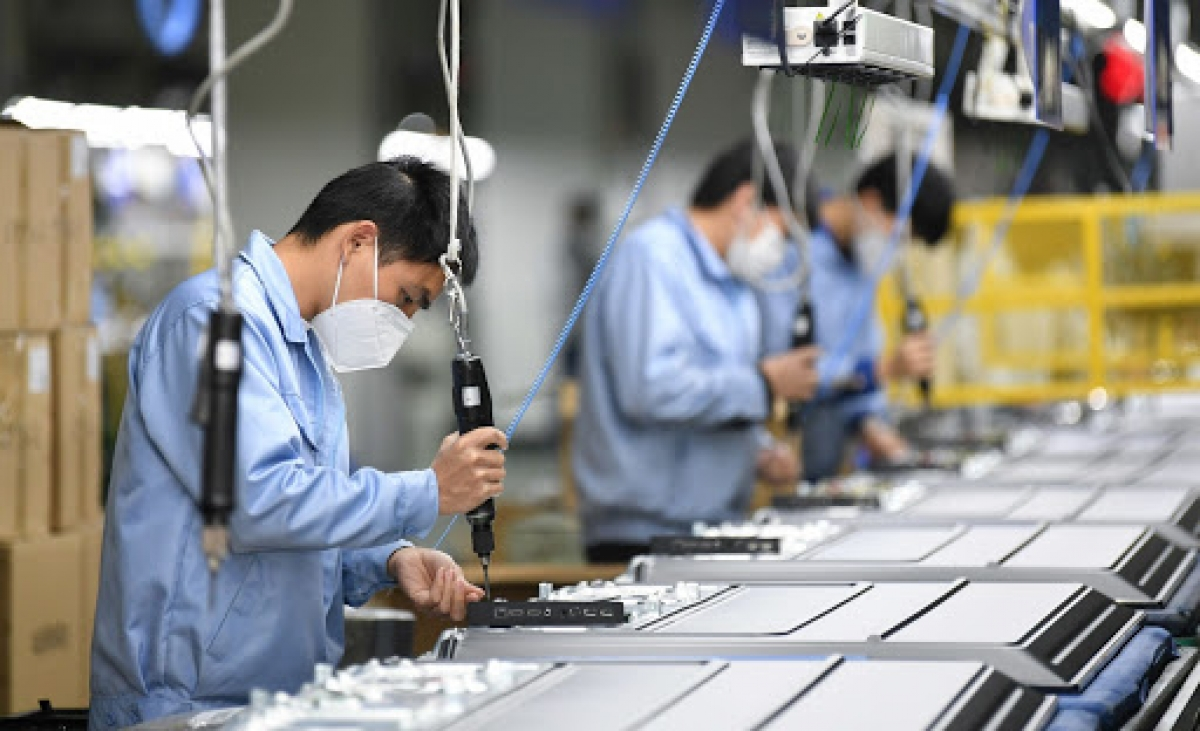 |
| One third of EuroCham members predicted a rise in their headcount during the next quarter. Photo: VOV |
With regard to the prospects of their own enterprises, European business leaders proved to be far more positive and optimistic in the fourth quarter. One third of EuroCham members predicted a rise in their headcount during the next quarter, with a further 57 percent expecting to maintain the same level. Meanwhile, 30 percent anticipate a rise in investment and 43 percent predict a rise in orders and revenue.
With the EVFTA now in force, EuroCham also polled members on their perceptions of the agreement and its impact on their business operations. Encouragingly 70 percent said that their business had already benefitted from the EVFTA since the deal came into force on August 1, 2020. Despite this, 33 percent also said that “administrative procedures” were the main barrier for them to fully utilise the EVFTA, indicating the importance of monitoring the implementation of this agreement.
“Our latest BCI paints a positive picture of Vietnam’s business environment as we look ahead to 2021. The growth in confidence we have seen over the last 12 months is a testament to the government’s swift and effective handling of COVID-19, and creates a strong foundation for the next five years of Vietnam’s socio-economic growth,” Nicolas Audier, chairman of EuroCham, quoted by VOV as saying.
“Meanwhile, our members report a positive impact of the EVFTA since it entered into force six months ago. European business leaders are looking forward to the increased trade and investment that the agreement will bring, while also highlighting some of the issues which need to be addressed to ensure its smooth and successful implementation,” he added.
Foreign companies boost investment in Vietnam
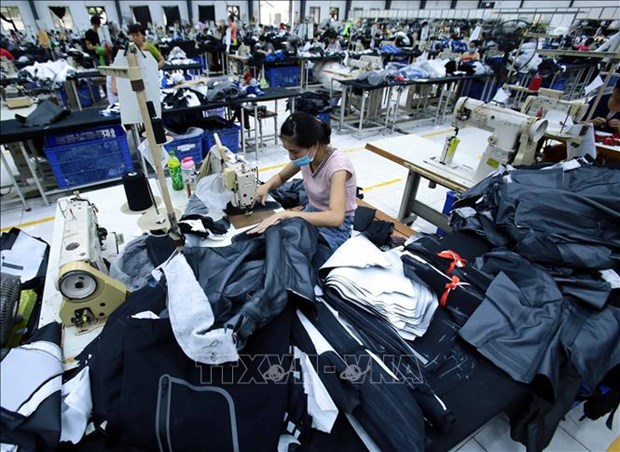 |
| Foreign enterprises poured a considerable amount of capital into manufacturing and processing projects in the first half of January. Photo: VNA |
Foreign enterprises poured a considerable amount of capital into manufacturing and processing projects in the first half of January, according to the head of the investment office at the Ho Chi Minh City Export Processing and Industrial Zones Authority (Hepza), Tran Viet Ha.
Notable among them was a 34 million USD project sprawling over 7ha at the Le Minh Xuan Industrial Park, operating in services and logistics, according to the Vietnam News Agency (VNA).
During the first days of 2021, authorities in southern Dong Nai province presented investment licences to three foreign-invested enterprises working in support industries, two of which are long-time South Korean suppliers to Samsung.
Canadian Consul General in HCM City Behzad Babakhani told the Dau Tu (Investment) newspaper that when the Comprehensive and Progressive Agreement for Trans-Pacific Partnership (CPTPP) was signed in 2019, two-way trade between Canada and Vietnam hit a record 6.15 billion USD that year.
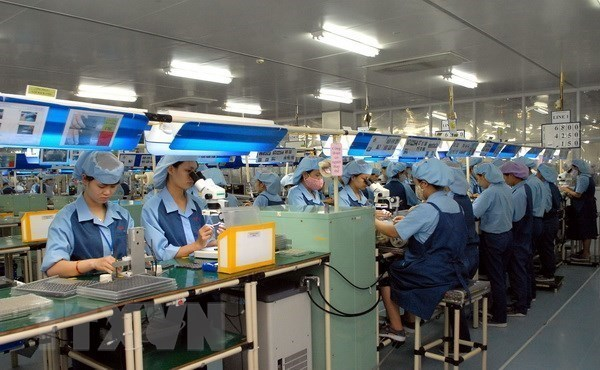 |
| Foreign enterprises poured a considerable amount of capital into manufacturing and processing projects in the first half of January. Photo: VNA |
Babakhani said Canadian exporters benefit from farm produce, fish, aquatic, and forestry product exports, while Vietnamese exporters see opportunities in manufacturing and processing, such as electronics, leather and footwear, apparel, wooden furniture, farm produce, and aquatic products.
Vietnamese manufacturers have the chance, he said, to access Canada’s expertise in the fields of genetics, biotechnology, the environment, green technology, and sustainability, which could propel its agriculture sector restructuring.
He said that many Canadian companies are pursuing trade opportunities in Vietnam in the fields of clean technology, information and communications technology, aerospace, infrastructure, healthcare products, wooden furniture, and financial services.
Vietnam is an important partner of Canada, which is pursuing diversified trade to the Asia-Pacific region, he said.
Vice Chairwoman of the Australian Chamber of Commerce in Vietnam, Chau Ta, said Australian capital flows to Vietnam will increase strongly now the Regional Comprehensive Economic Partnership (RCEP) has been signed, given that the agreement will create an attractive investment environment in Vietnam and focus on job creation, local renovation, and integration into the global supply chain.
Australian companies are likely to increase investment in fields where Vietnam holds a competitive edge, and tap its trade ecosystem, such as the export of raw materials, manufacturing, and services.
She suggested they invest in fields that saw strong development in Vietnam after the pandemic, such as information technology, healthcare, and e-commerce./.
| The BCI is a regular barometer of EuroCham members and is a means of gauging the general perceptions of the business environment. Each quarter, it tracks the performance of EuroCham’s member companies, in addition to their thoughts the country’s economic outlook, with the fieldwork and data collection for the BCI being conducted by YouGov Vietnam. |
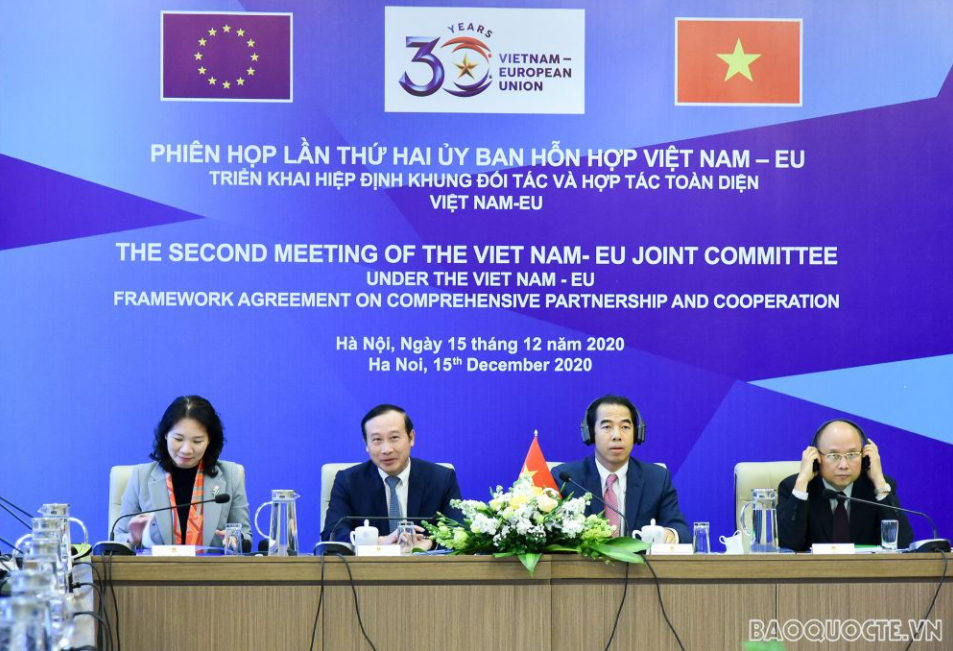 | EU supports maintaining maritime and aviation security & law-abiding in Bien Dong Sea Deputy Foreign Minister To Anh Dung and Mr. Gunnar Wiegand, Managing Director for Asia and the Pacific at the European External Action Service (EEAS) co-chaired ... |
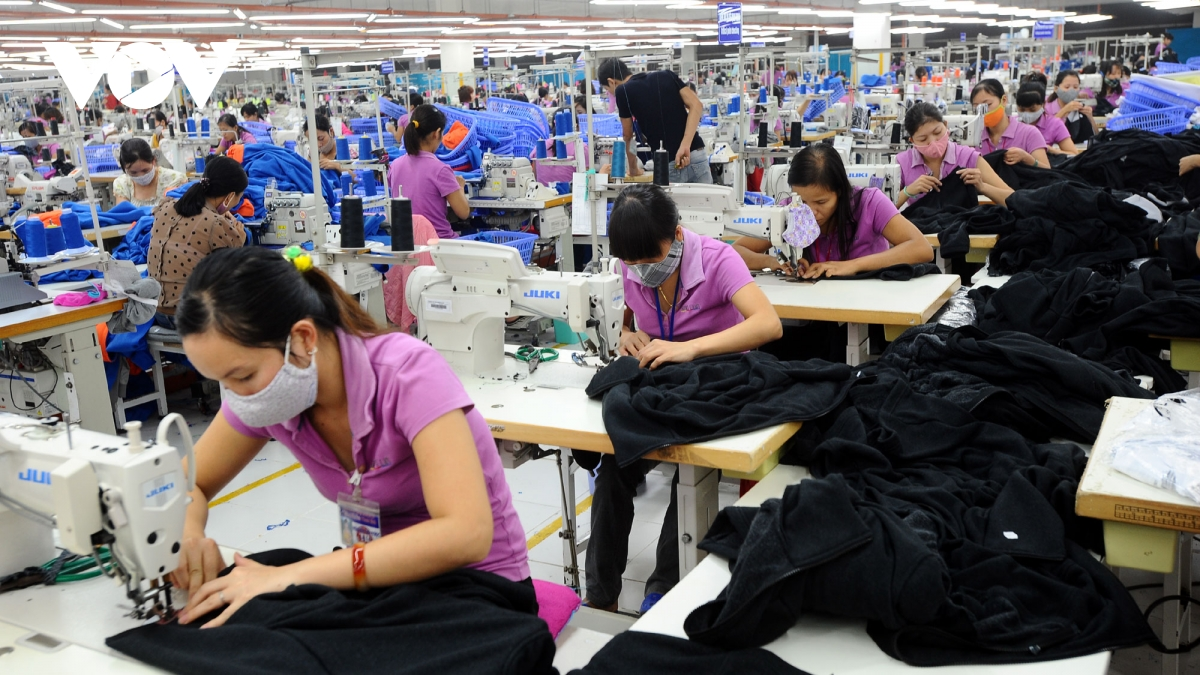 | EVFTA offers ample room for Vietnam-Netherlands cooperation in fashion industry With the implementation of the EU-Vietnam Free Trade Agreement (EVFTA), trade ties between Vietnam and the Netherlands, especially in the fashion industry, are expected to ... |
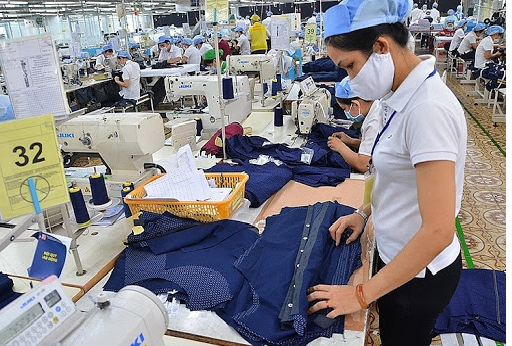 | Vietnam, Italy eye strong economic ties Economic cooperation between Vietnam and Italy would develop further in the time ahead through new legal frameworks such as the EU-Vietnam Free Trade Agreement (EVFTA) ... |

